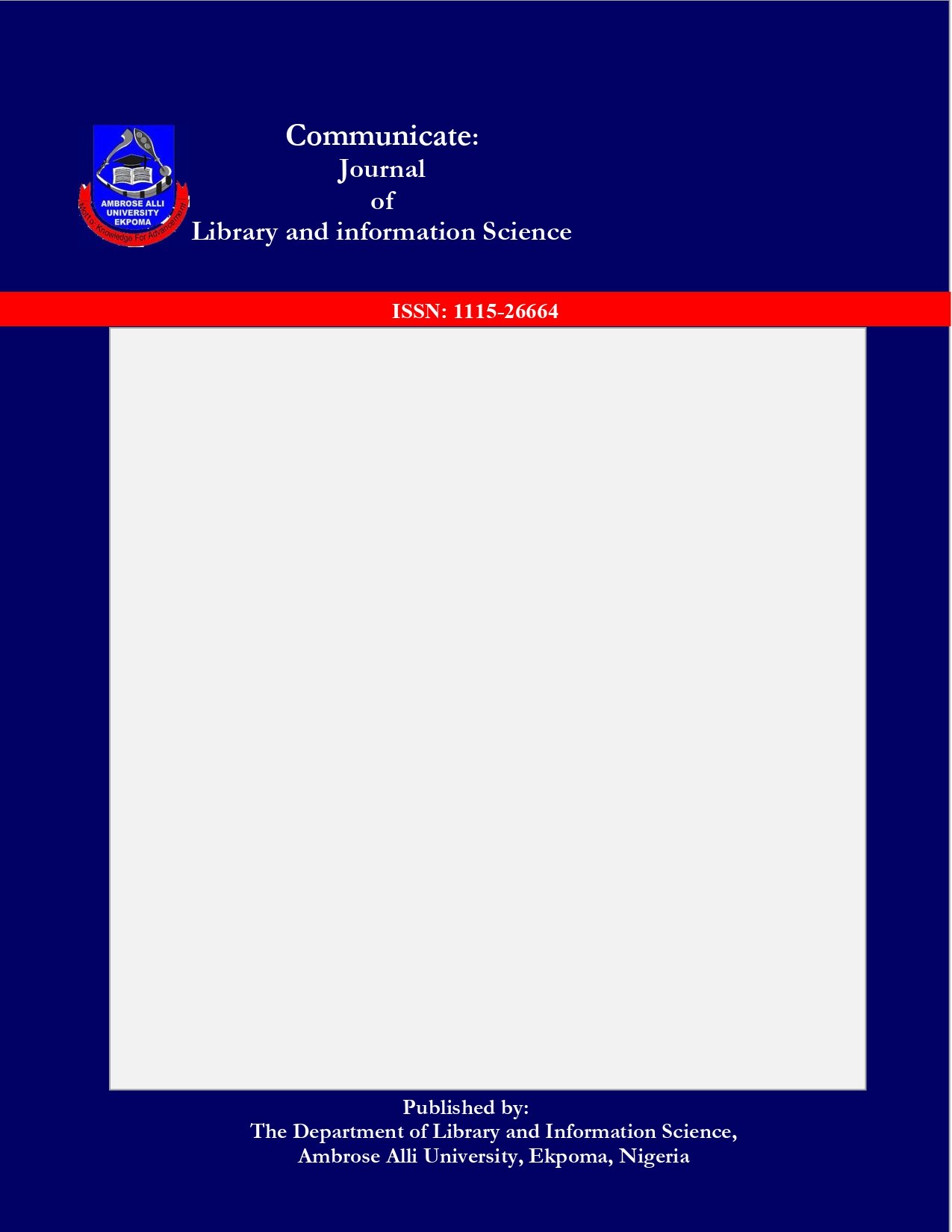Computer self-efficacy as correlates of electronic information resources utilization among law undergraduates in South-West, Nigeria
Main Article Content
Abstract
This study examines the correlation between computer self-efficacy and the utilization of electronic information resources among law undergraduates in South-West Nigeria. This research employed survey research design of correlational type and adopted multi- stage sampling techniques for the sample size, the population of the study comprised of 4,432 law undergraduates in universities in South-west Nigeria. The sample size is 870. The validity and reliability of the instrument was done using Cronbach alpha coefficient at 0.78. The data collected were analysed using descriptive and inferential statistics while hypothesis was tested using Pearson Product Moment Correlation and Multiple Regression Analysis at 0.05 level of significance. The findings of the study showed that majority of the respondents affirmed high level of confidence, competence and ability to use computer with a mean score of ( = 3.65), ( = 3.58) and ( = 3.71) respectively. There was a strong positive correlation between computer self-efficacy and the utilisation of electronic information resources (r=0.587, p<0.05). The study concluded that students with high computer self- efficacy were able to use electronic information resources better than law students with low computer self- efficacy and the study recommended that universities should introduce digital literacy training to improve computer skills of law undergraduates in South- west, Nigeria.
Article Details

This work is licensed under a Creative Commons Attribution-NonCommercial-NoDerivatives 4.0 International License.

